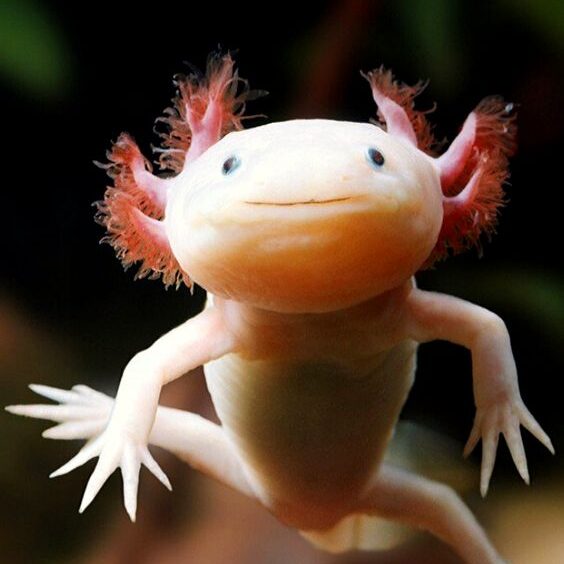
When it comes to unique and captivating pets, axolotls are making quite a splash in the pet-keeping world. These aquatic creatures, often referred to as “Mexican walking fish” despite not being fish at all, have garnered a reputation as wonderful pets for a variety of reasons. Let’s dive into what makes axolotls good pets.
Reasons that Make an Axolotl a Good Pet
Axolotls, including leucistic axolotl and mosaic axolotl, make wonderful pets for several reasons. They are easy to care for, have a unique appearance, and are known for their gentle disposition. Axolotls are an excellent choice for pet enthusiasts, offering a captivating and low-maintenance addition to any aquarium.
Low Maintenance
One of the most appealing aspects of owning an axolotl is their low maintenance requirements. Unlike traditional pets like dogs or cats, axolotls don’t need daily walks or constant attention. They thrive in aquariums with minimal care, making them an excellent choice for busy individuals or first-time pet owners.
Fascinating Appearance
Axolotls are truly one-of-a-kind in terms of appearance. With their frilly gills, external gill slits, and perpetual smile, they look like creatures from a fantasy world. Their unique appearance is not only endearing but also educational, as they offer an opportunity to learn about amphibian anatomy and biology.
Long Lifespan
Investing in a pet comes with the hope of a lasting companionship, and axolotls don’t disappoint in this regard. These remarkable creatures can live for up to 10 to 15 years with proper care. This extended lifespan allows owners to form a deep bond with their aquatic friends over the years.
Quiet Companions
For those who live in apartments or close quarters, the quiet nature of axolotls is a blessing. Unlike noisy pets that can disturb neighbors, axolotls are virtually silent. They communicate through subtle body movements, providing a serene and tranquil environment for both the pet and the owner.
Axolotl Pros and Cons as a Pet
Owning an axolotl as a pet can be a rewarding and unique experience, but like any pet, it comes with its own set of pros and cons. Let’s explore both sides of the coin to help you make an informed decision.
Pros of Owning an Axolotl
1. Fascinating Appearance
One of the most compelling reasons to own an axolotl is their captivating appearance. With their external gills, feathery frills, and perpetual smiles, they look like creatures straight out of a fairy tale. Their unique appearance can be a source of endless fascination and a great conversation starter.
2. Low Maintenance
Axolotls are renowned for their low maintenance requirements. They don’t demand daily walks or constant attention. Regular tank cleaning, appropriate water quality, and a consistent feeding schedule are all it takes to keep them healthy and happy.
3. Long Lifespan
Axolotls have a relatively long lifespan, often ranging from 10 to 15 years with proper care. This extended companionship allows owners to form deep bonds with their aquatic pets over the years, making them a significant part of the family.
4. Educational Value
Owning an axolotl can be an educational experience, especially for children. It provides an opportunity to learn about amphibian biology, ecology, and the importance of responsible pet ownership. They can even serve as classroom pets, promoting scientific curiosity.
Cons of Owning an Axolotl
1. Specialized Habitat
Axolotls require a specific and controlled aquatic habitat, including clean, dechlorinated water and appropriate water temperature. Setting up and maintaining the tank can be a bit more challenging compared to some other pets.
2. Limited Interaction
Unlike dogs or cats, axolotls are not pets you can cuddle or play with. Their interactions are limited to observing their movements in the aquarium. If you’re looking for a hands-on, interactive pet, axolotls may not be the best choice.
3. Feeding Challenges
Axolotls have specific dietary needs, primarily consisting of live or frozen food like bloodworms and brine shrimp. Sourcing these foods may require extra effort and occasional trips to specialty pet stores.
4. Lifespan Commitment
While the long lifespan of axolotls is a pro, it can also be a con for some individuals. Owning an axolotl is a commitment that spans a decade or more, so prospective owners should be prepared for this long-term responsibility.
Things You Need to Know Before Buying an Axolotl as a Beginner
Owning an axolotl can be a rewarding experience, but it’s essential to understand their specific needs and requirements before bringing one into your home, especially if you’re a beginner. Before getting an axolotl as a beginner, understanding Axolotl Care is essential. They require a well-maintained aquarium environment, and tools like aquarium chillers for axolotl may be needed to regulate water temperature. Researching their dietary needs, lifespan, and tank setup is crucial to ensure a happy and healthy axolotl companion. Here are some crucial things you should know:
Setting up the Habitat
Creating the right environment for your axolotl is paramount. They require an aquarium with ample space, typically a minimum of 20 gallons for a single axolotl, with additional space for each additional axolotl. The tank should have hiding spots, such as plants and caves, and a soft substrate like sand or fine gravel to prevent injury to their delicate underbellies.
Feeding Requirements
Axolotls are carnivorous and have specific dietary needs. They primarily feed on live or frozen food, including bloodworms, brine shrimp, and specially formulated axolotl pellets. It’s essential to provide a varied diet to ensure they receive all the necessary nutrients. Feeding should be done 2-3 times a week, adjusting the quantity based on their size and appetite.
Water Quality Maintenance
Maintaining clean and suitable water conditions is crucial for axolotl health. Axolotls are sensitive to water temperature, typically thriving in temperatures between 60-68°F (15-20°C). Regular water changes, dechlorination, and the use of a good filtration system are essential to keep the water clean and toxin-free.
Health and Well-being
Monitoring the health of your axolotl is vital. Common health issues include fungal infections, bacterial infections, and parasites. If you notice any unusual behavior or physical changes, consult a veterinarian experienced in amphibian care. Regular observation and water quality testing can help prevent health problems.
How to Deal with a Bad Axolotl Pet
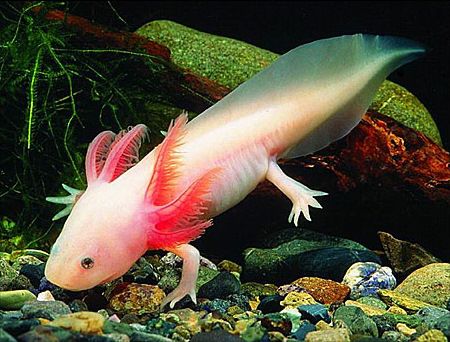
Having a challenging axolotl pet can be a daunting experience, but with patience and the right approach, many issues can be resolved. Here’s a guide on how to deal with a “bad” axolotl pet.
Identifying Behavioral Issues
Understanding the behavior of your axolotl is key to ensuring its well-being. Axolotls communicate through their actions, and recognizing behavioral issues early can prevent potential health problems. Here are some common behavioral concerns and insights into their identification:
Erratic Swimming
If you notice your axolotl exhibiting erratic swimming patterns, it’s crucial to investigate the potential causes. Erratic swimming can be a sign of stress, discomfort, or even health issues. Check the water conditions, ensuring they are within the optimal temperature range of 60-68°F (15-20°C). Additionally, ensure there are adequate hiding spots to reduce stress and observe if any tankmates are causing disturbances.
Hiding Excessively
While axolotls are naturally shy and enjoy hiding, excessive hiding may indicate heightened stress levels. Consider the environment—bright lights, loud noises, or frequent disturbances can contribute to this behavior. Providing more hiding spots, plants, or decor can create a secure and calming environment for your axolotl to explore.
Aggression
Aggression among axolotls is relatively rare, but it can occur, especially in shared tanks. Signs of aggression include biting, chasing, or territorial behaviors. If you observe aggression, consider providing additional hiding spots or, if necessary, separate the aggressive individuals. It’s essential to create an environment that minimizes stress and promotes peaceful cohabitation.
Health Concerns
Maintaining the health of your axolotl is paramount to ensure a long and happy life. Regular observation and prompt action are crucial for addressing potential health concerns. Here’s a closer look at common health issues in axolotls:
Skin and Gills Issues
The skin and gills of an axolotl are key indicators of its overall health. Any abnormalities, such as lesions, redness, or white patches, may signal skin infections, fungal issues, or external parasites. Monitor water quality closely, ensuring appropriate temperature and cleanliness, to prevent these issues. If irregularities persist, consult with a veterinarian experienced in amphibian care for a thorough examination.
Loss of Appetite
A sudden loss of appetite in axolotls can be a cause for concern and may indicate underlying health problems. Poor water quality, stress, or the presence of parasites are potential factors. Take measures to evaluate and improve water conditions, offer a variety of nutritious foods, and observe the axolotl’s behavior. If the loss of appetite persists, seeking professional help is advisable.
Seeking Professional Help
When dealing with health concerns in axolotls, seeking professional assistance is crucial. Not all veterinarians are well-versed in amphibian care, so it’s essential to find one with specific experience in treating axolotls. Professional help ensures accurate diagnoses and appropriate treatment plans tailored to the unique needs of these aquatic creatures
FAQs
What is an axolotl, and why are they considered as pets?
Axolotls are a unique aquatic salamander species known for their regenerative abilities and captivating appearance. They are considered as pets due to their low maintenance requirements and intriguing nature.
Are axolotls suitable for beginners?
Yes, axolotls can be suitable for beginners if proper research and care are provided. They are hardy animals, but beginners should educate themselves on their specific needs.
What type of habitat do axolotls need?
Axolotls require a well-maintained aquarium with clean, dechlorinated water, appropriate filtration, and hiding spots like plants and caves.
What do axolotls eat?
Axolotls primarily eat live or frozen food, including bloodworms, brine shrimp, and pellets specially formulated for amphibians.
How often should I feed my axolotl?
Typically, axolotls are fed 2-3 times a week. Adjust the feeding schedule based on their size and appetite.
Do axolotls have any special water quality requirements?
Axolotls are sensitive to water quality. Maintain appropriate temperature (around 60-68°F or 15-20°C) and use a good filtration system to keep the water clean.
Can I keep multiple axolotls together?
It’s best to keep axolotls individually or in a spacious tank with plenty of hiding spots to prevent aggression or stress.
What are common health issues in axolotls?
Common health issues include fungal infections, bacterial infections, and parasites. Monitoring water quality is essential to prevent health problems.
How long do axolotls live?
Axolotls have a relatively long lifespan, usually ranging from 10 to 15 years with proper care.
Are axolotls legal to keep as pets in my area?
Axolotal legality varies by location. Check with your local authorities or exotic pet regulations to ensure they can be kept legally in your area.
Conclusion
In conclusion, axolotls are fascinating and unique pets with their own set of advantages and challenges. Understanding their specific needs, from setting up an appropriate habitat to maintaining water quality, is essential for responsible ownership. The mesmerizing appearance, low maintenance requirements, long lifespan, and potential for educational experiences make them an appealing choice for pet enthusiasts.
However, it’s crucial to consider both the pros and cons before bringing an axolotl into your home. Specialized care and attention are necessary to ensure their well-being and longevity. Additionally, addressing behavioral issues and monitoring their health are essential aspects of responsible ownership.
With 3 years of devoted companionship alongside my aquatic friend, Bob, I’ve gained profound insights into the captivating world of fishkeeping. From understanding behavior to ensuring optimal health, my journey with Bob has enriched my expertise in all things aquatic.

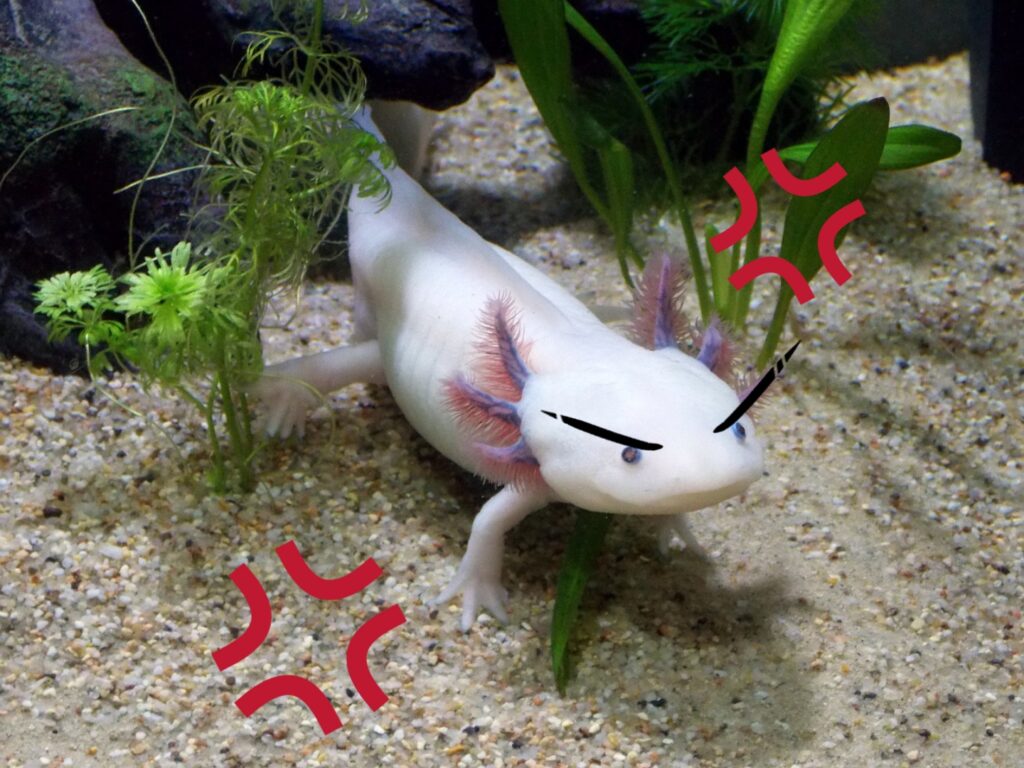
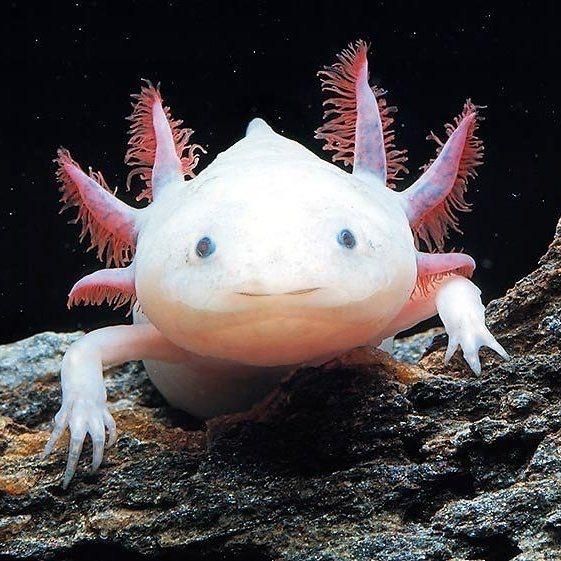
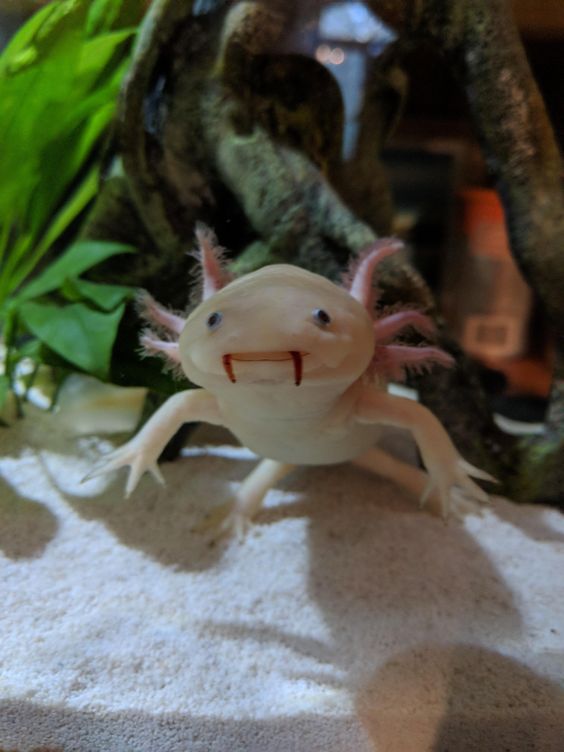
Pingback: Do Axolotls Lay Eggs? - Fish Hue